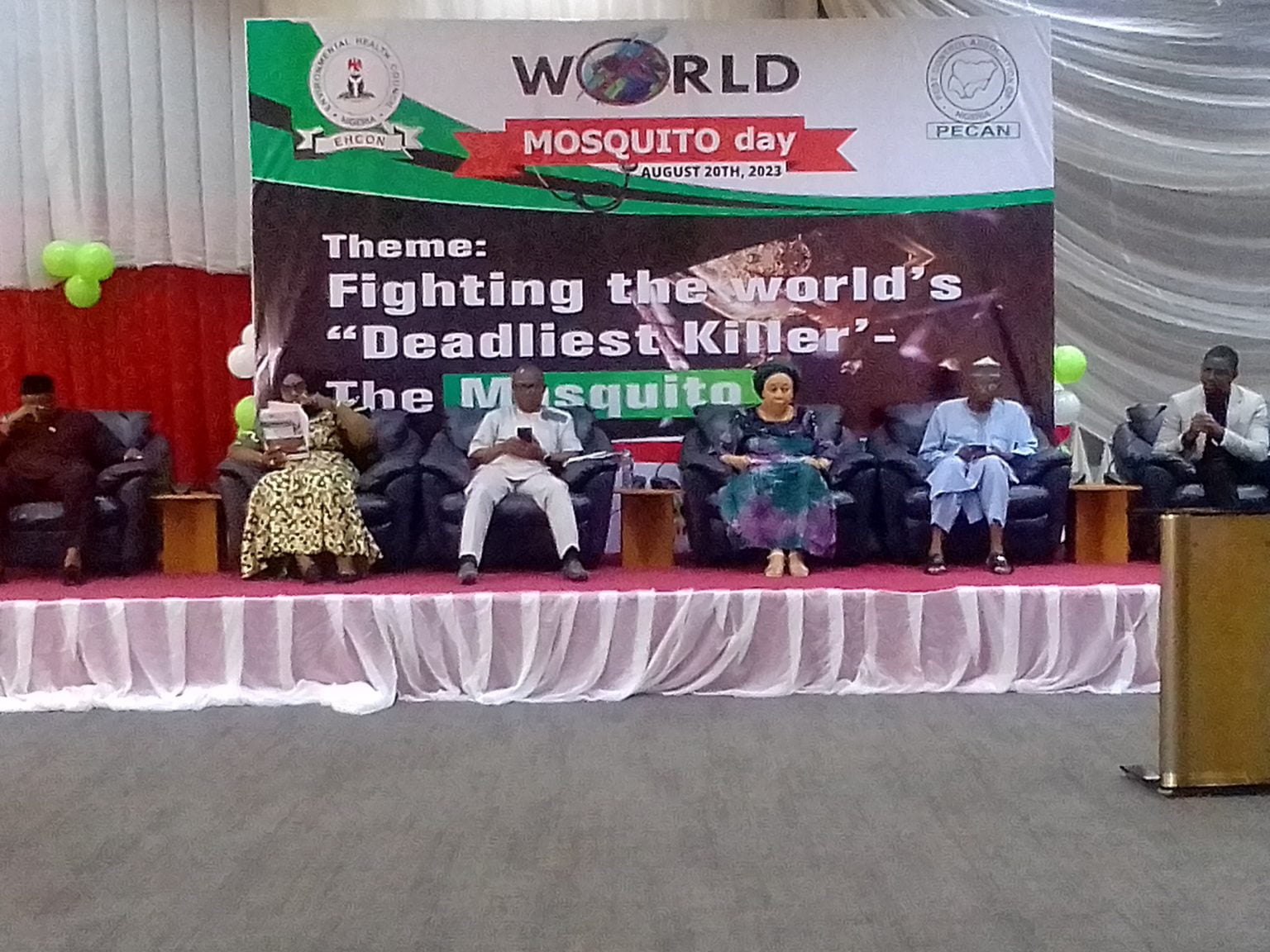Abuja - August 22 - (Mediaage NG News) – The Registrar of the Environmental Health Council of Nigeria (EHCON), Dr. Yakubu Mohammed Babe, on Monday at a symposium commemorating World Malaria Day in the Nigerian capital, Abuja, said it’s imperative to take the fight against mosquitoes and its parasites more seriously because, once the activities of mosquitoes are controlled, other value chain in Malaria control will become “a walk over”.
Represented by the Director and Senior Technical Assistant, Isah Adamu, Dr. Mohammed also said a key observation made by the council, regarding the increasing threats of mosquitoes is the lack of an adequate delivery of malaria control programmes. Another finding he said is the lack of more mosquitoe control activities at the national and state levels to control the threats of Mosquitoes
Related post:
EHCON, PECAN Sensitizes Public On Dangers of Mosquitoe Friendly Environments.
At the event collaborated with the Pest Control Association of Nigeria (PECAN), he acknowledged that the council is aware of the Nigerian government keenness in the flight against Malaria, citing the “newest intervention by the government’s ‘Nigeria End Malaria Council'”.
“As the custodian of the profession of environmental health, we are all aware that Nigeria has been at the forefront in the fight against Malaria. The Abuja declaration ushered the ‘roll back malaria’ campaign over twenty years ago but, if we put into stock on how far we have gone since then, it will reveal that not much has been achieved, especially in Nigeria, a leading campaigner of eradication of Malaria in the African continent”, he said.
He said one of the gaps inherent in the control of malaria, is the total neglect of the vector, a deadly killer, and faulted the lack of weighty research on the lifestyle and habitat of the vector.
“This is an organism with over 3,609 species globally and in Nigeria, there’s is a good number, even though it is yet to be ascertained what species we have, and owing to the neglect, no much has been researched into the habitat and lifestyle of the vector, he continued.
“As a country, we don’t have any benchmark to ascertain the number of species. This is a gap caused by a complete lack of research, caused by the bionomics of the vector, Dr. Mohammed said.
He said there’s an avalanche of regulations and guidelines that control the practice of pest control experts but, is disappointed by the lack of “necessary attention from those in authority, especially, as it relates to ending the Malaria scourge”.






